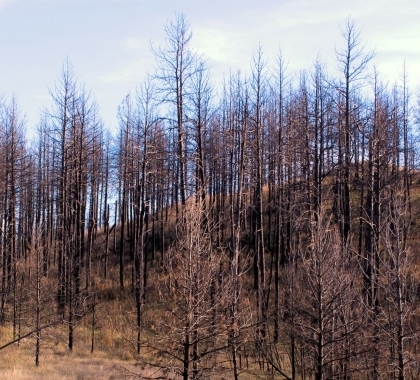The Cascade Policy Institute is Oregon’s free-market think tank. Cascade was incorporated in 1991, and in the early years it focused primarily on promoting school choice and state tax reform.
In 1997, Cascade made a strong commitment to free-market environmentalism by hiring John Charles as environmental policy director. Charles had just finished a 16-year term as CEO of the Oregon Environmental Council.
Tackling Transit
Under Charles’ direction, Cascade has promoted market-based reforms in many environmental and natural-resource policy areas.
Arguably, Cascade is most well-known for its work on light rail transit and its effect on urban development. Portland, Oregon is internationally known for its commitment to rail transit, urban growth boundaries, and high-density zoning. Mainstream environmentalists believe these policies lead to reduced driving, cleaner air, and enhanced transit use—but they are wrong.
Cascade researchers have spent more than 20 years measuring how people who live or work near rail transit stations travel. Most of them drive, regardless of their proximity to public transportation. Cascade used this research to help people in other states fight subsidized light rail lines, including Denver, Honolulu, Houston, Minnesota, San Antonio, and Tampa.
Cascade has also persistently promoted market-based reforms for transportation finance. Most roads are paid for through hidden mechanisms such as gas taxes, vehicle registration fees, sales taxes, and property taxes. Because people do not bear the cost of using scarce highway space directly, they tend to overuse highways at certain times of the day, resulting in traffic congestion and air pollution. Cascade has written extensively about the benefits of reducing or eliminating indirect taxes and replacing them with real-time user fees. Technological innovations allow such fees to be collected electronically, with variable rates (congestion pricing) to reflect the scarcity of supply at peak hours.
Energy Policy Reform
Cascade is currently focusing on energy policy reforms such as the preservation of grid reliability, which is being threatened by green power mandates.
State law in Oregon requires electric utilities to procure 50 percent of their power from politically designated “renewable” sources by 2040. Because the law defines the region’s iconic Columbia River hydroelectric dams as “not renewable,” utilities are building more and more industrial-scale wind and solar facilities, which fail to produce energy most of the time. Because demand and supply for electricity must be in equilibrium at all times in order to avoid blackouts, experts now forecast Oregonians will begin facing power losses beginning this year.
Cascade has called for a number of reforms, including an end to solar and wind subsidies, re-legalizing nuclear power, and reversing a previous decision by Portland General Electric to prematurely shut down the state’s only coal-fired power plant at the end of 2020 until the utility has a cost-effective strategy to replace coal with reliable sources.




